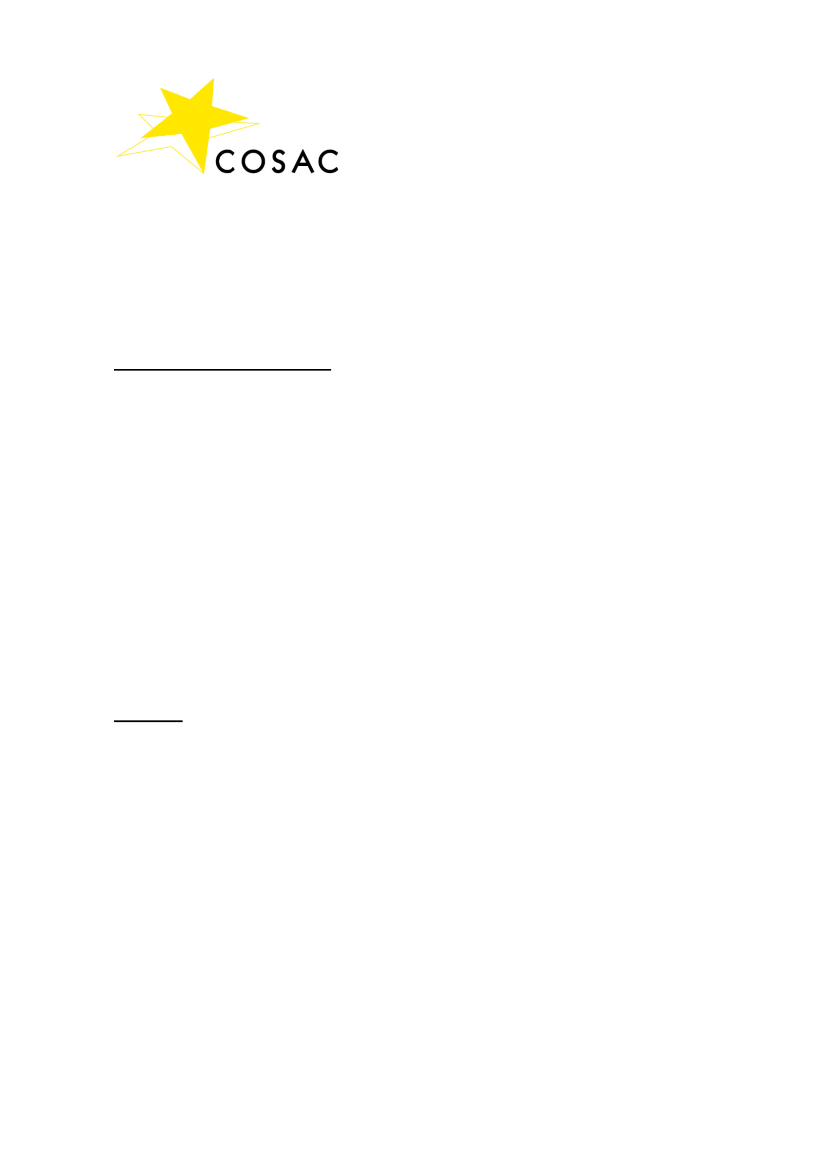
MINUTES OF THE MEETING OF THE PRESIDENTIAL TROIKA OF COSAC
P
ARIS
, F
RANCE
, 14 J
ANUARY
2022
PRESENT AT THE MEETING
CHAIR: Mr Jean-François RAPIN, Chair of the European Affairs Committee of the
French
Sénat,
Ms Sabine THILLAYE, Chair of the European Affairs Committee of the
French
Assemblée nationale;
Mr Ondřej BENEŠÍK, Chair of the European Affairs Committee of the Czech
Poslanecká
sněmovna,
Mr David SMOLJAK, Chair of the European Affairs Committee of the Czech
Senát;
Mr Nik PREBIL, Deputy Chair of the Committee on EU Affairs, Slovenian
Državni zbor,
Mr Bojan KEKEC, Chair of the Commission for International Relations and European
Affairs, Slovenian
Državni svet.
(Ms Roberta METSOLA, First Vice-President, European Parliament, and Mr Antonio
TAJANI, Chair of the Committee for Constitutional Affairs, European Parliament, were
unable to attend.)
AGENDA
PROCEEDINGS
1. Adoption of the agenda of the Meeting of the Presidential Troika of COSAC
2. Approval of the draft programme of the COSAC Chairpersons’ Meeting
3. Debate on the draft programme for the LXVII COSAC Plenary Meeting
4. Approval of the Outline of the 37th Bi-annual COSAC Report
5. Letters received by the Presidency
6. Any other business
2
2
2
2
3
3
4
1